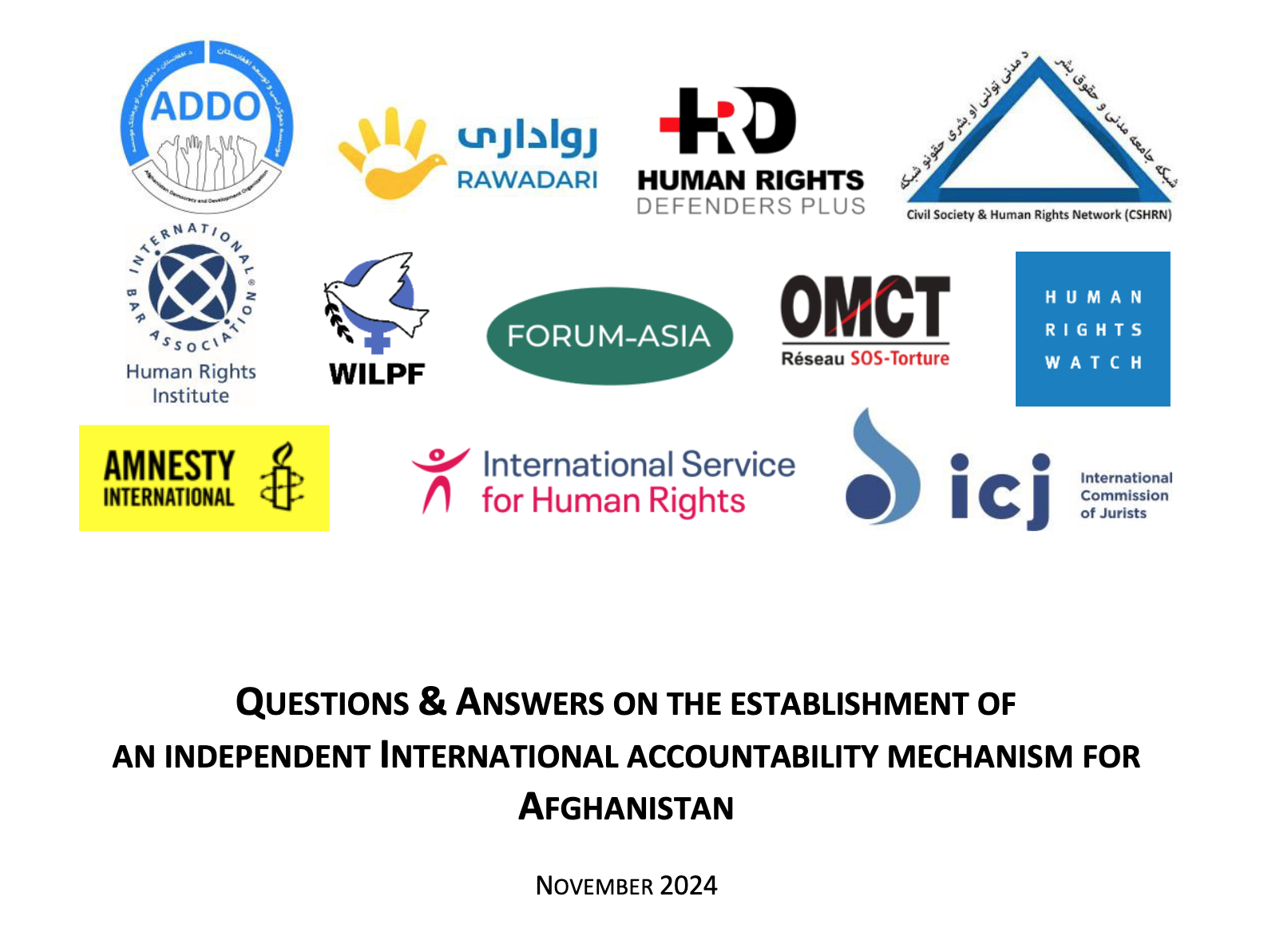Since taking power in August 2021, the Taliban have imposed ever-more extreme restrictions on human rights. The rights of women and girls have been especially affected, while journalists, human rights defenders, and protesters, face harassment, arbitrary detention, and violent reprisals. The situation is only worsening and the pursuit of justice for all in Afghanistan demands a multifaceted approach, including the establishment of an accountability mechanism.
© Engin Akyurt / Pexels

Renewed call for an accountability mechanism on Afghanistan
ISHR and partners have published a revised Q&A document that provides details of a Human Rights Council-mandated comprehensive accountability mechanism on Afghanistan.
Since 2021, Afghan and international civil society organisations have emphasised the need for an independent accountability mechanism to investigate and collect, preserve and analyse evidence of grave violations and abuses in Afghanistan, with a view to advancing accountability.
In September, ninety Afghan, regional and international non-governmental organisations renewed their appeal for the Human Rights Council to establish an independent comprehensive investigative mechanism on Afghanistan. That same month, this call was supported by ISHR and partners engaging at the Human Rights Council with a letter to Member States along with a Q&A on the requested mandate.
Today, ISHR along with partners, have published a revised Q&A setting out details of a Human Rights Council mandated comprehensive accountability mechanism on Afghanistan, as well as its added value, and how it would build on and complement existing efforts.
Such a mechanism could be a key tool in addressing the entrenched impunity at the heart of the current crisis, advancing accountability, and supporting access to justice, truth and reparation for victims. It would be distinct and complementary to the vital mandate of the UN Special Rapporteur on Afghanistan, and would also complement and support ongoing or future efforts at the International Criminal Court, the International Court of Justice, and at the national level.
The call builds on the most recent resolution adopted by the Human Rights Council in October, which provides a blueprint for action needed going forward, stressing the urgent need to ensure accountability, as well as on the OHCHR stocktaking report on accountability options and processes.
‘Addressing long-standing and entrenched impunity for past and ongoing human rights violations and abuses in [Afghanistan] is essential to ensure victims’ rights to justice, truth and reparation’.OHCHR stocktaking report on accountability.

Read the Q&A
This document provides further details of the mandate a comprehensive accountabilty mechanism on Afghanistan should have, its added value, and how it would build on and complement existing efforts.
Read